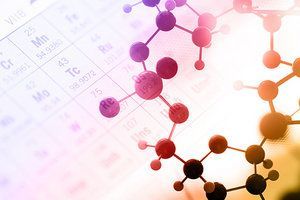One of the longest nerves in the body is known as the vagus nerve (VN). The VN is the 10th pair of cranial nerves that originates at the brain stem in the medulla oblongata. This nerve is part of the parasympathetic nervous system, which is a part of the ANS. Research suggests ear acupuncture can activate the VN.
Immunotherapy: Where Molecular Medicine Crosses Into Holistic Thinking
Immunotherapy, and its promise as a cancer treatment, has been in the news a lot in the last few years, and for good reason. Real shifts are happening in oncology and exciting researchers, clinicians, and patients. It can be challenging for the casual reader to get a clear picture of immunotherapy because the term can be found in reference to different treatment paradigms. Occasionally, this will just mean a treatment given with intent to activate the immune system. In that regard, anything that is immune supportive is immunotherapy.
Recently, immunotherapy has come to refer to one of two distinct treatment approaches. One is a refinement of the long-standing practice of targeting cancer cells, but using tools cribbed from the immune system. Another idea referred to as "immunotherapy" does not target the cancer but rather impacts the patient immune system quite directly, a radical departure from historical treatments. Both offer new opportunities to move oncology toward personalized medicine, a foundational value of TCM.

The usual treatments for cancer are fairly blunt instruments directed against renegade cells. Surgical excision and radiation are obviously aimed directly at the malignant mass. Chemotherapy typically does the most damage to rapidly dividing cells which have lost some of their quality-control mechanisms, and this winds up affecting cancerous cells more than healthy cells overall. Still, the goal is to attack the cancer with as much ferocity as the rest of the body can withstand. The organizing philosophy has been to name the enemy "cancer" and declare war. This approach has rallied policy makers, researchers, and funding bodies to focus resources on a very difficult problem, and in that way it has been effective. However, the word "cancer" has some limitations as a clinical term.
"Cancer" only means that some cells are multiplying out of control and have acquired the ability to invade other tissues. That is the observable behavior arising from an underlying dysfunction. The word cancer is often used as if it describes a disease, but it really only describes the basic sign/symptom of uncontrolled cell replication. As is true for any sign or symptom, cancer can arise from very different underlying problems. Like an emergency room doctor must determine if a patient's shortness of breath is from anxiety or from a heart attack, and like an acupuncturist must determine if insomnia is rooted in a deficiency or excess pattern, practicing oncologists are beginning to ask questions about what is behind the presentation of cancer.
The science of biomarkers charted the first steps toward making this question a real part of clinical practice. We now know of many different pathways to the state we call cancer and can test for them. Did the cell start producing too many receptors for growth signals, effectively locking itself into an eternal state of growth? Did a mutation cause a receptor to be locked into the "on" position, whether it was being signaled or not? Did the cell lose one of its DNA proofreading proteins? The more we can diagnose the specific underpinning of each person's disease, the more targeted treatment can be. Immunotherapy has played an important part in this shift. Its contribution has been to harness an aspect of the immune system to target the disease drivers, which may vary from person to person, from cancer to cancer.
Immunotherapy Basics
Immunotherapy simply refers to using antibodies as the active agent in treatment, rather than a chemical or knife or radiation. Antibodies are proteins which each have a specialized binding surface which will adhere to a specific target. Normally, they are made by a subset of immune cells (B cells) and attach themselves to materials which have been identified as foreign or abnormal in some way. They can also be generated in laboratories, however, and this is the heart of immunotherapy. A typical scenario is: a tumor is found to have overexpressed a growth receptor, so that all its cells are absorbing too many growth signals, fueling the problem. These receptors are a normal constituent part of the body, so the immune system would not see them as anything to attack. Lab-grown antibodies can be infused, which will find the problematic receptor and effectively coat it. The antibodies will "jam" the receptor's ability to receive signal and also alert the patient immune system to focus on the tagged material. This is the exact clinical picture for a breast cancer patient with HER2 positive disease. HER2 is a growth factor receptor and Herceptin is the name of the most common immunotherapy used to address its overexpression.
Each tumor has its own fingerprint of aberrant genes and this fingerprint changes over time as additional mutations accumulate. Not only does every person have an individual pattern driving their disease, but that pattern is a moving target. This perspective is a given in acupuncture, where each patient's symptoms are seen as arising from an underlying dynamic pattern. Immunotherapy is helping Western medicine to see and address the personal and evolving nature of disease.
Immunotherapy Revolution
Immunotherapy has recently made a leap that is qualitatively different from the treatment model of targeting cancer cells. It still makes use of antibodies, but instead of homing to targets on cancer cells, the antibodies coat a key portion of immune cells. This treatment coats receptors on T cells, the attack cells of the immune system. The twist is that these antibodies coat a receptor which accepts inhibition signals. When inhibition signals can't reach the receptor due to this coating, the cell is locked "on" and is free to attack at will. It is actually an end-run around cancer cells who, craftily, often churn out signals just for such inhibition receptors on T cells. This may also be a treatment strategy that acupuncturists can relate to. It can be thought of as a tonification approach, where bolstering a patient's native healing system is a key component of therapy.
Where antibody-based therapies are concerned, cancer researchers are just getting started. Most treatments are still in trials, with only a few in standard, first-line use. The recent explosion of interest does suggest that there may be a new era coming in cancer treatments, one whose philosophy includes some very old wisdom.



